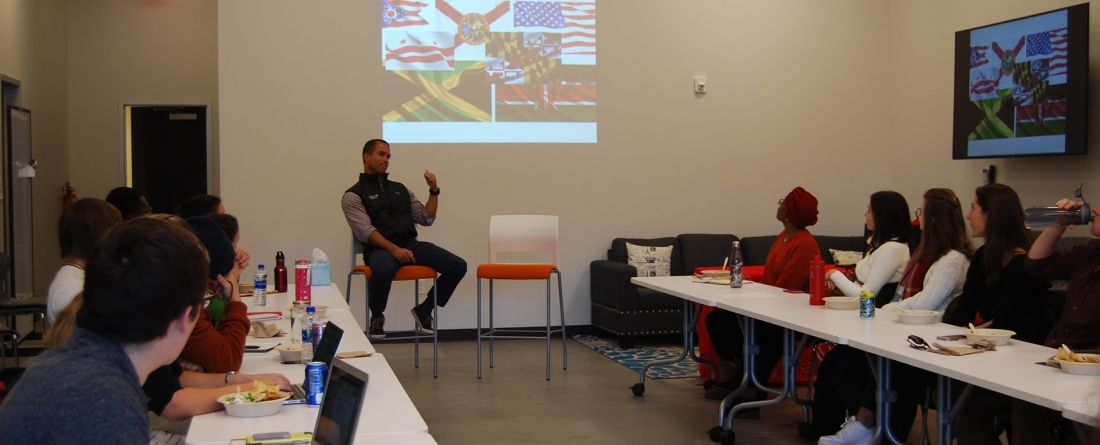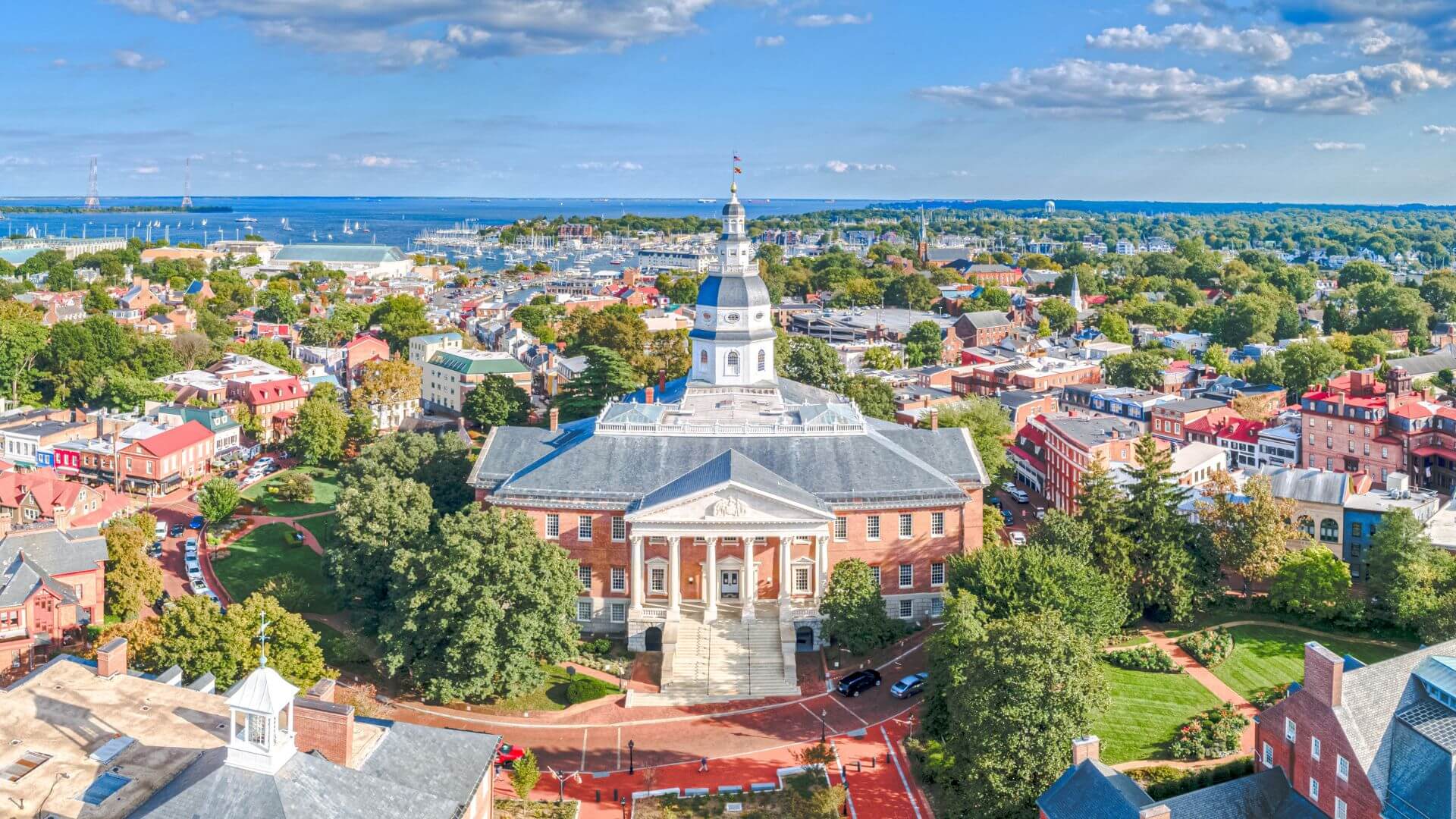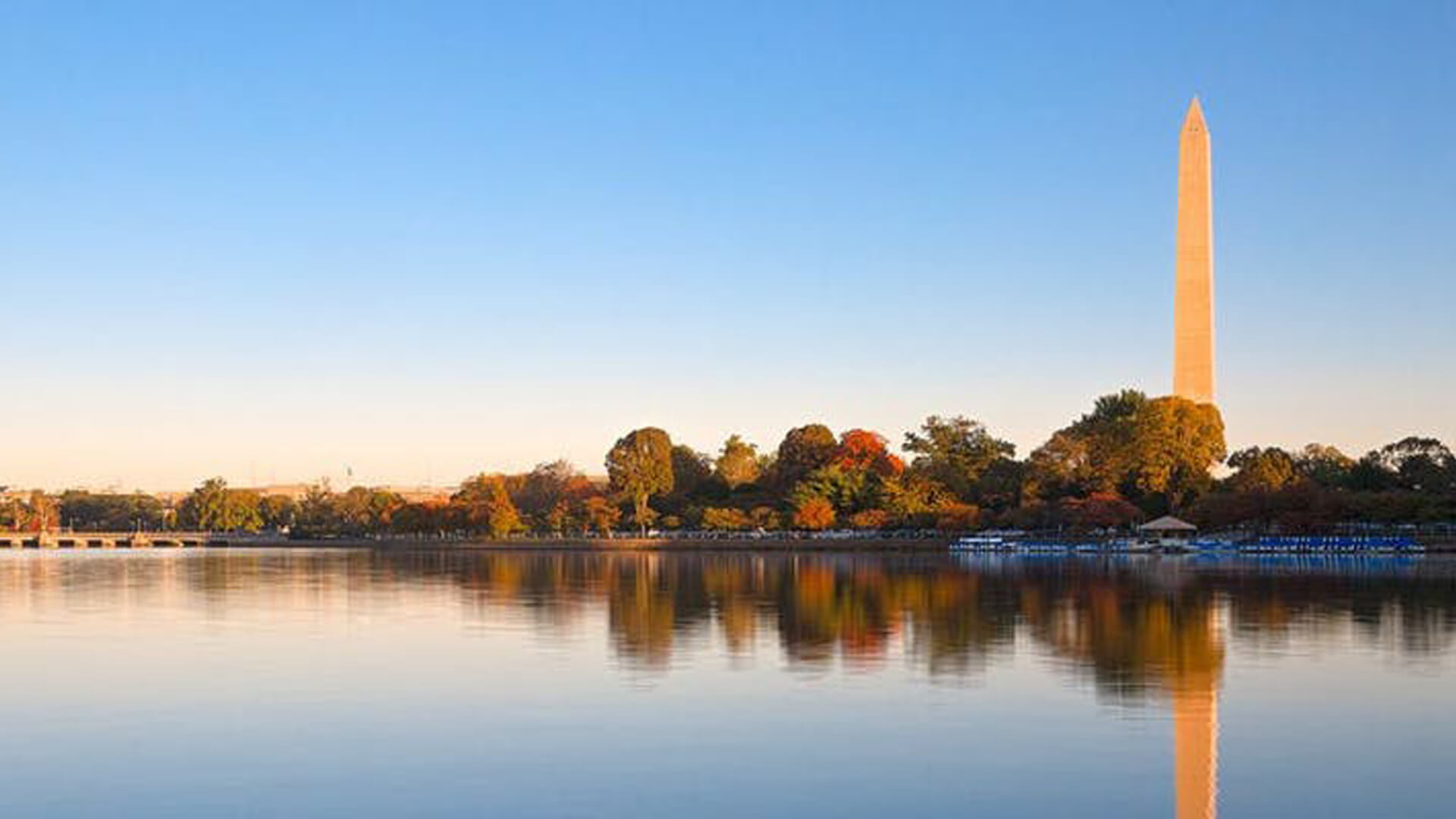
Last week members of the UMD community filled the Do Good Accelerator to hear from The Nature Conservancy’s Khalil Kettering as part of Do Good Institute’s Lunch with Leaders series.
Khalil Kettering (MPP ’15) is the Urban Conservation Program Director for The Nature Conservancy working to build natural solutions and green infrastructure in the Washington D.C. metro area. He spoke about his career path and how he has been inspired to protect nature from the time he was a young boy. Growing up in Kenya, he was amazed by the beauty and power of wildlife and has since dedicated his life to preserving exactly that. He noted “my biggest mentor is the Lorax” and spoke on the importance of advocating for the earth when it can’t advocate for itself.
With his expertise in urban conservation, Kettering spoke about the global footprint that cities occupy. While only 2 percent of landmass is taken up by cities, 70 percent of the global population will be living in cities by 2050 and are estimated to be using around 80 percent of the world’s resources. With these jarring statistics in mind, Kettering is determined to alter the way we manage our resources in urban areas. Currently, he is working with stormwater, attempting to limit the amount of toxic runoff that cities are currently sending to nearby natural bodies of water.
Using a business model, Kettering and the Nature Conservancy harnessed the influence of Impact Investing to rethink the way that stormwater is managed. Together with local partners, Kettering is working to build momentum for the first ever stormwater retention credit trading program in D.C. This involves using natural solutions, like rain gardens and bioswales, that absorb stormwater and reduce runoff into the Anacostia and Potomac Rivers. Thanks to D.C.’s water management laws, the Nature Conservancy was able to organize this project in which new real-estate developments work in partnership with older buildings outside the city to balance water “credits”. While each property in the DC area has to pay stormwater fees, the Nature Conservancy’s new credit innovation allows brand new infrastructure to be built while also empowering existing local buildings to better manage their water supplies – ultimately limiting toxic runoff.
This new and innovative partnership not only equips people to better handle stormwater but offers incentive to new businesses who are coming to the District to make greener decisions. Learn more about the project here.
While managing stormwater is Kettering’s main project, he also works with vulnerable communities to build green spaces in neighborhoods where there aren’t many natural spaces; and trains youth in advocacy so they can visit Capitol Hill to speak to their representatives about why conservation policy matters to them.
As Kettering spoke about his work, he urged listeners to be optimistic and focus on pragmatic and solution-oriented work. He noted that too often challenges seem “too big” when it comes to curbing global warming and improving conservation. Yet he assured listeners that there is meaningful work that can be done, and each person can do their part to create a greener, more sustainable world.



